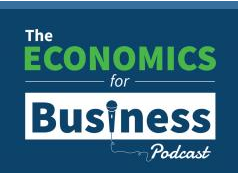All value is subjective. But often, when an exchange is to be made, a numerical value is required. It’s a special kind of economic calculation, what Bharat Kanodia terms “a subjective opinion based on objective facts”. Bharat has built a career on valuations, from 2-founder garage start-ups to the Eiffel Tower. He shares his knowledge, experience, and insights with the Economics For Business podcast. Key Takeaways And Actionable Insights Valuations start with a “what?” and a “why?” What is the subject of the valuation? Is it a building but not the land it’s sitting on? Is it a patent? Is it a monetized patent or just an approved patent? Is it the assets of a business or is the going business? All these definitions and classifications of what’s being valued
Topics:
Hunter Hastings considers the following as important: 6b) Mises.org, Featured, newsletter
This could be interesting, too:
RIA Team writes The Importance of Emergency Funds in Retirement Planning
Nachrichten Ticker - www.finanzen.ch writes Gesetzesvorschlag in Arizona: Wird Bitcoin bald zur Staatsreserve?
Nachrichten Ticker - www.finanzen.ch writes So bewegen sich Bitcoin & Co. heute
Nachrichten Ticker - www.finanzen.ch writes Aktueller Marktbericht zu Bitcoin & Co.
All value is subjective. But often, when an exchange is to be made, a numerical value is required. It’s a special kind of economic calculation, what Bharat Kanodia terms “a subjective opinion based on objective facts”.
Bharat has built a career on valuations, from 2-founder garage start-ups to the Eiffel Tower. He shares his knowledge, experience, and insights with the Economics For Business podcast.
Key Takeaways And Actionable Insights
Valuations start with a “what?” and a “why?”
What is the subject of the valuation? Is it a building but not the land it’s sitting on? Is it a patent? Is it a monetized patent or just an approved patent? Is it the assets of a business or is the going business? All these definitions and classifications of what’s being valued clearly make a big difference to the outcome.
What is the purpose of making a valuation? It might be a step in buying a business. Or in selling a business. It may be a valuation of an asset for insurance purposes, or for estate tax estimation. The valuation may be a tool for raising capital, or an assessment following a capital raise. The same asset can have different valuations for different purposes.
That’s why it’s important to start with the what and the why.
The most challenging business valuation is for a start-up.
Two founders working from a garage have a business idea and some code but no customers and no revenue. The business needs a valuation in order to raise capital. It makes no sense to value it on the basis of discounted future projected cash flows. They’re imaginary.
The business is going to be valued based on the story the founders tell, and a rule of thumb valuation that works backwards from the percentage of the business the founders are willing to give to a seed investor.
Most 2-founder garage pre-revenue businesses are deemed worthy of a $1 million valuation, because an investor can be given 20% of the business for a $200,000 investment, which are reasonable heuristics for both parties. Bharat advises founders not to haggle too much over this valuation stage — if the business is successful, this initial financial structure is largely irrelevant for the founders.
In subsequent post-revenue investment rounds, operations have more impact on valuation than future revenue projections.
Even once there’s revenue and a validated business model, projected future revenues are seldom the basis for valuation. There’s usually a hockey stick projection, or a long list of unverifiable assumptions. It’s more important to investors — and valuers — to examine operations, and specifically whether the business owners have a valid, detailed, and convincing plan to scale up. This kind of operations planning demands great rigor, both for purposes of implementation and for convincing investors.
Often, it’s the quality of storytelling that underpins the valuation.
With a detailed operations plan in place, the selling business founder or proprietor can build a persuasive story about future growth and potential. Here, emotion plays a big part. Can the business owner communicate how intensely the need is felt by potential customers? Can he or she communicate the passion they feel to deliver a solution to those customers? And the deep emotional commitment to the years of hard work it will take to attain appropriately ambitious goals?
The story, well-executed, validates the valuation.
For businesses like CPA firms, medical practices, and construction, 2 major factors have an outsize influence on valuations.
When an investor buys a mature service business, especially a local one, they are generally seeking hassle-free cash flow. They’re not looking to buy problems to fix.
Two factors stand out for these kinds of buyers. One is reliable recurring revenue from loyal customers. It must be revenues that are fully attributable to the service, and unlikely to be cut when there is a change of ownership.
The second is automation or established smooth-running and self-maintaining operations mechanisms. Bharat’s advice to sellers of these kinds of businesses is to automate everything you can, with reliable control software wherever possible.
These kinds of service businesses may have high levels of reputation and trust based on surveys and qualitative data, but those intangibles must be backed up with the behavioral reliability of the customer base.
In today’s markets, followers are a highly valued asset.
In many ways, recurring revenue is a metric to quantify followership. Ryan Reynolds has a followership. Nike has a followership. Tom Cruise has a followership. These followers are all monetizable as buyers of goods or services or movie tickets associated with these personalities and brands. Your personal brand has value if you have followers and if the followership can be monetized.
Every asset can be assigned a valuation — even the State of Hawaii and the Brooklyn Bridge.
Bharat has been called upon to give valuations of the Brooklyn Bridge, the Atlanta airport, and the state of Hawaii, among many other famous places or things. Sometimes, the valuation is for insurance purposes, sometimes for accounting. In all cases, there’s a number (or a range).
Once the what and the why are established, there is a mechanism for valuation that can be applied to any asset or stock or flow.
Additional Resources
“Pathways To Business Valuation” (PDF): Mises.org/E4B_141_PDF
“How to Double Valuation?” (Video): Mises.org/E4B_141_Video1
“What’s Pre-IPO Worth?” (Video): Mises.org/E4B_141_Video2
Tags: Featured,newsletter









